
inhalatorium, fondazione ermanno casoli prize,
Elica factory, jelcz-laskowice, poland, 2025
Inhalatorium (site-specific intervention)
Venue Elica factory, Jelcz-Laskowice, Poland
Date June 14 - permanent installation
Organised by Fondazione Ermanno Casoli
Curated by Marcello Smarelli & Jakub Gawkowski
Photography Alicja Kielan















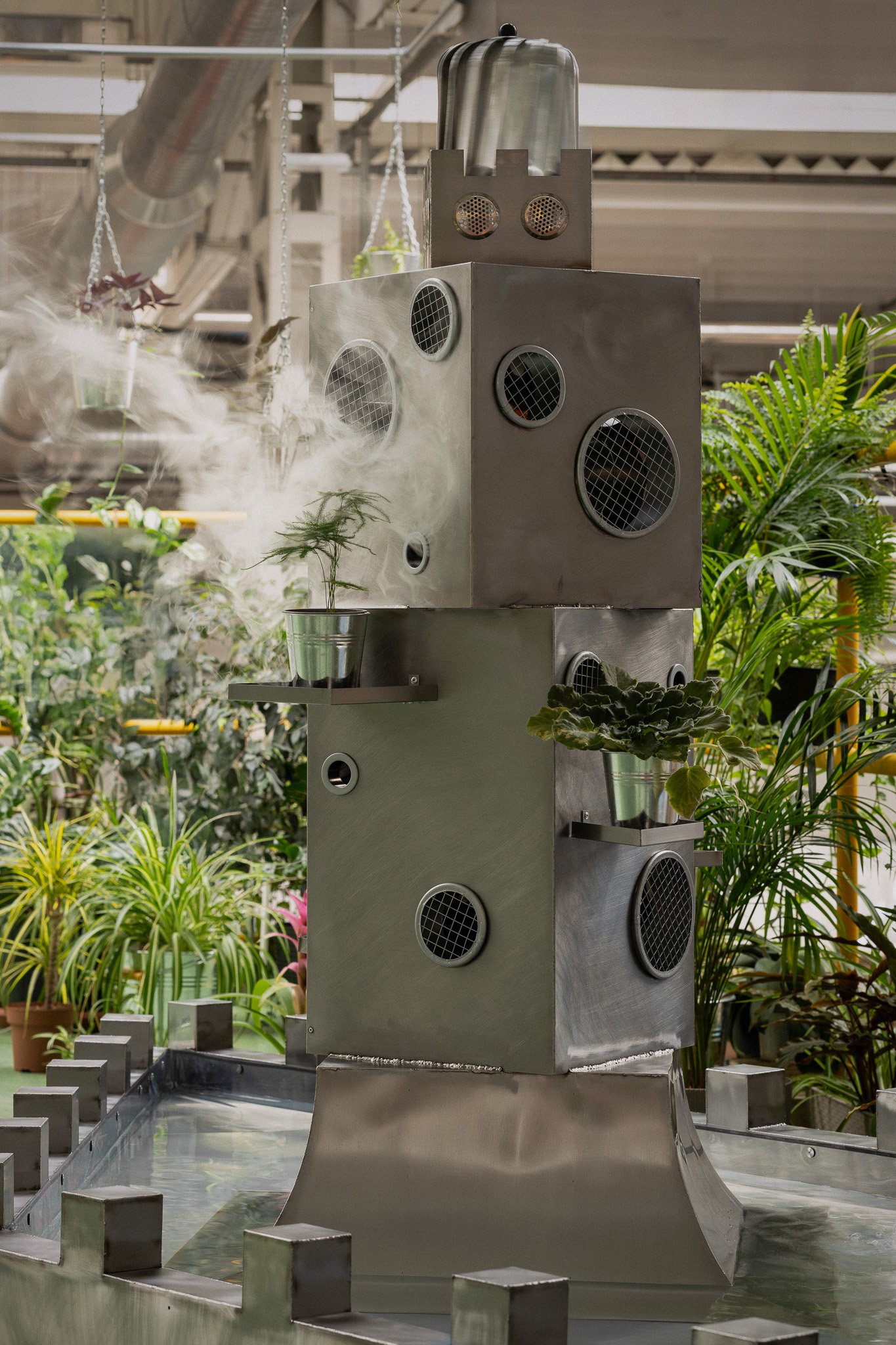
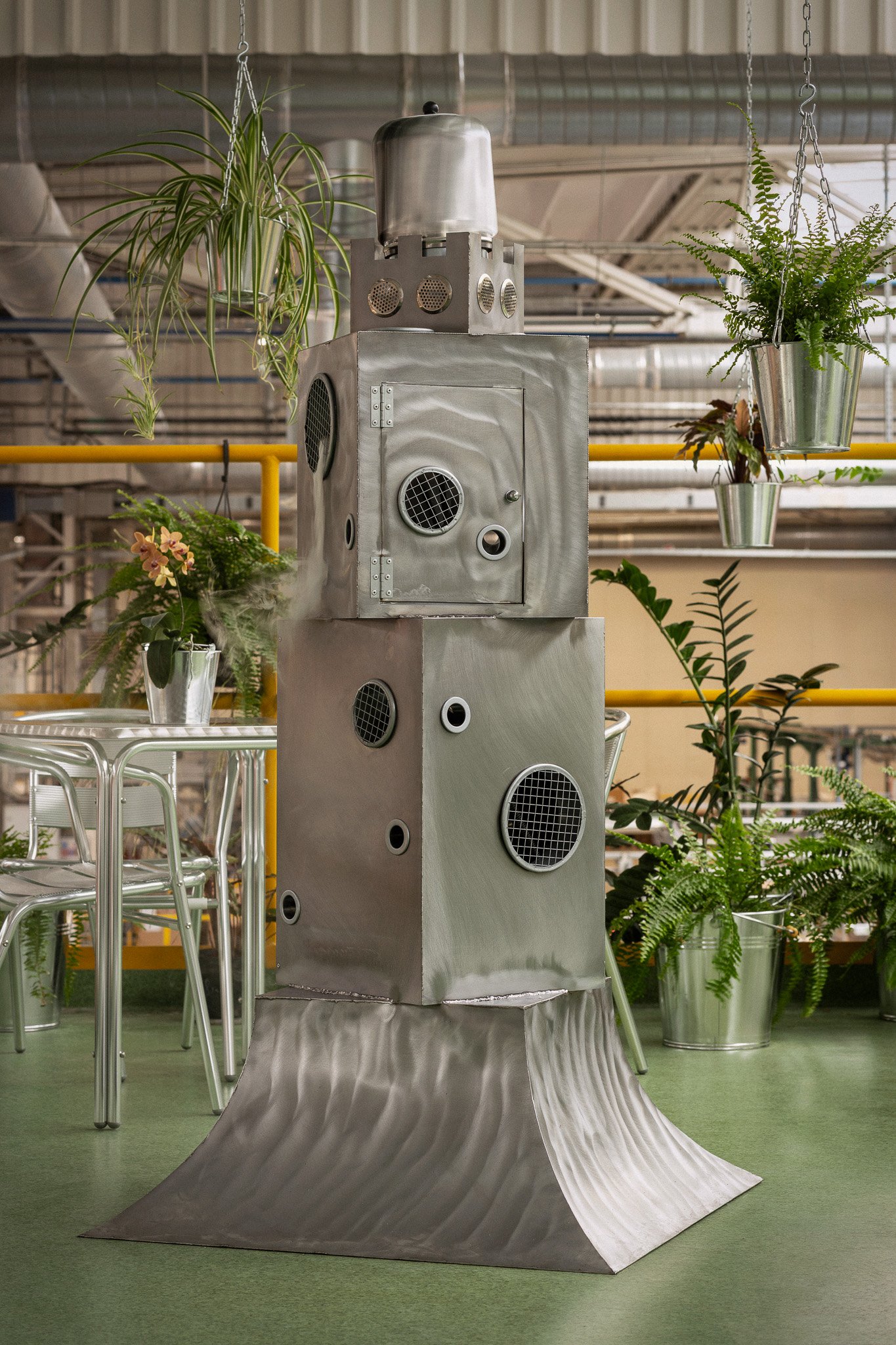
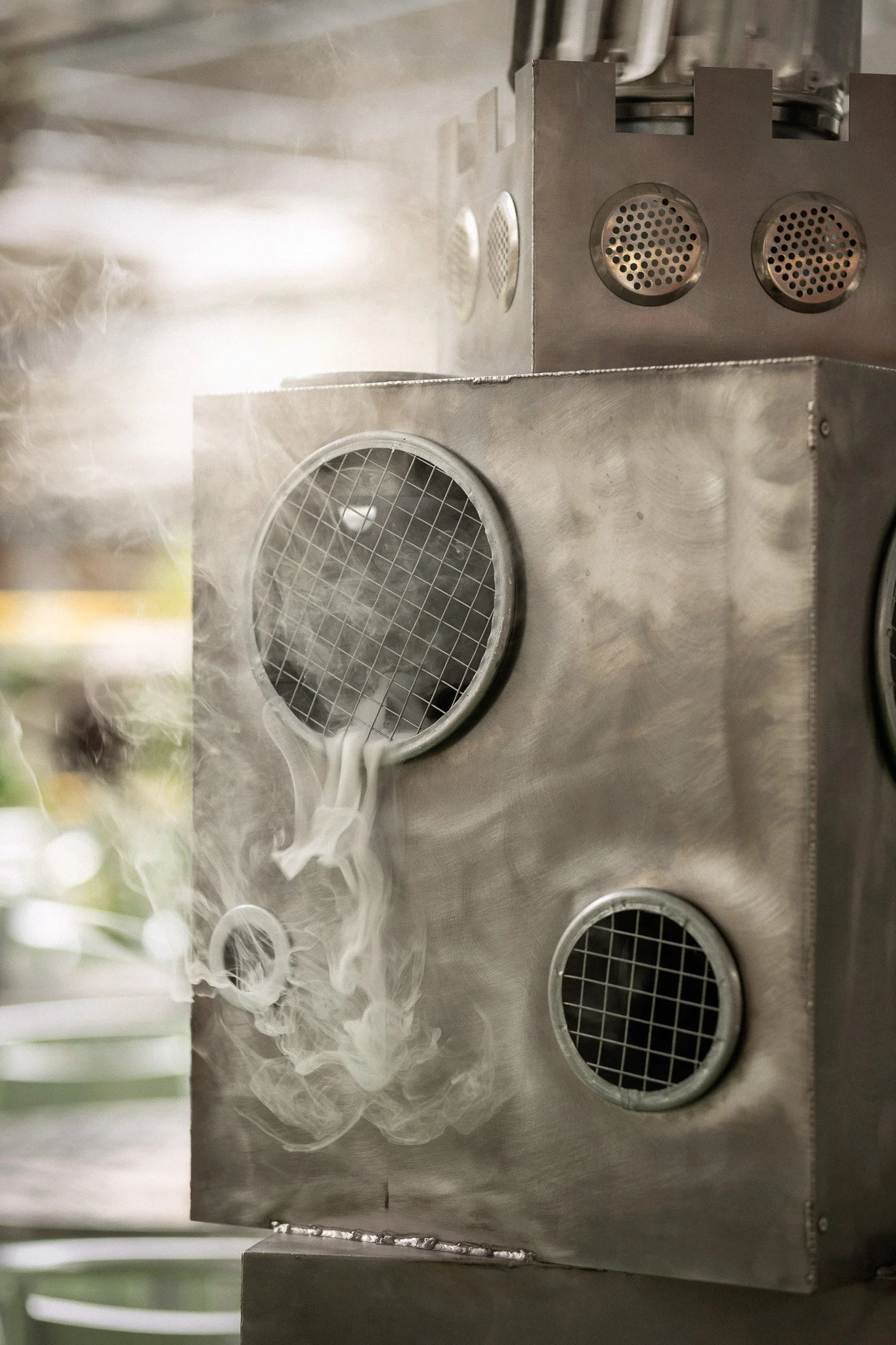
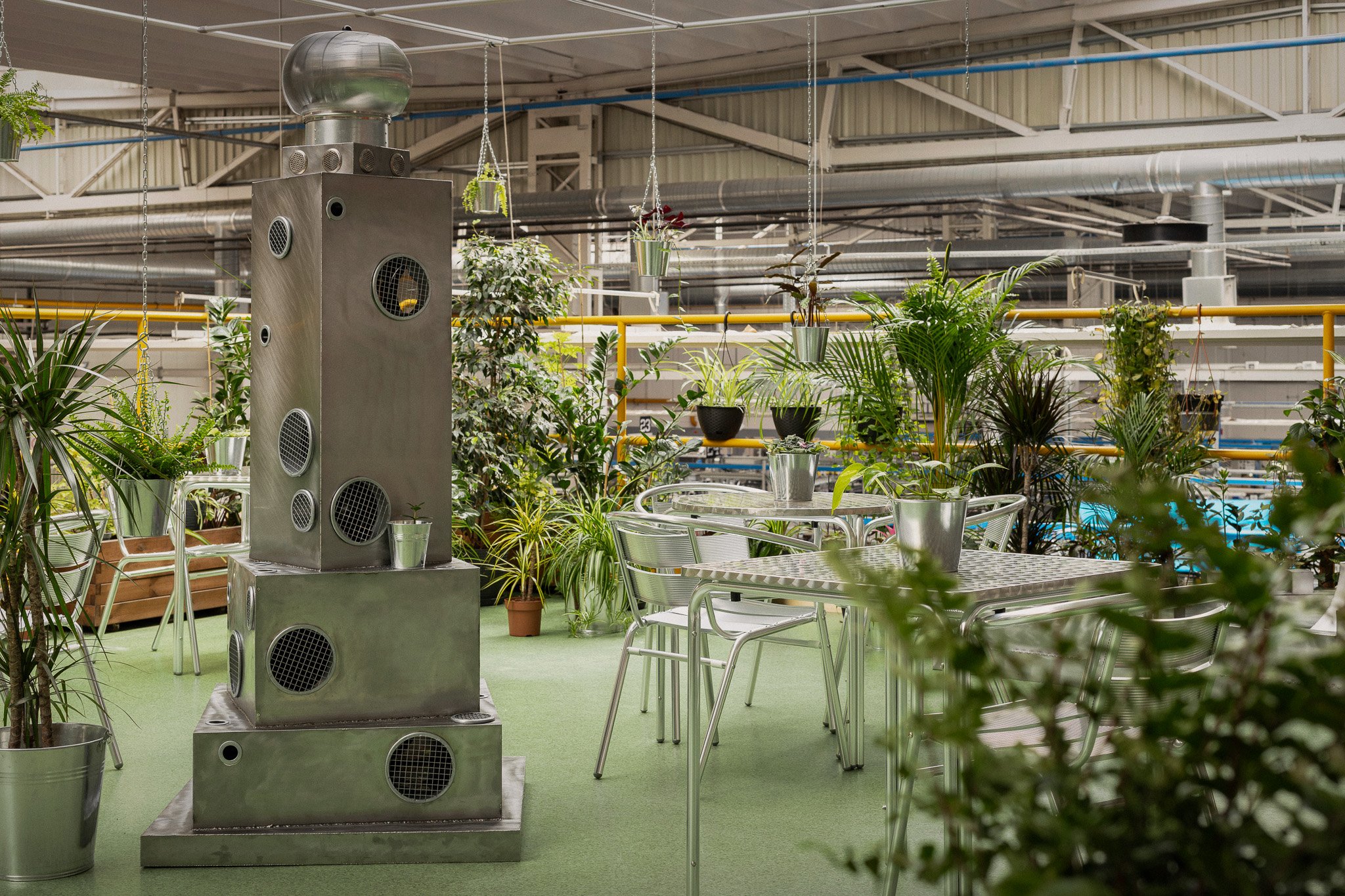
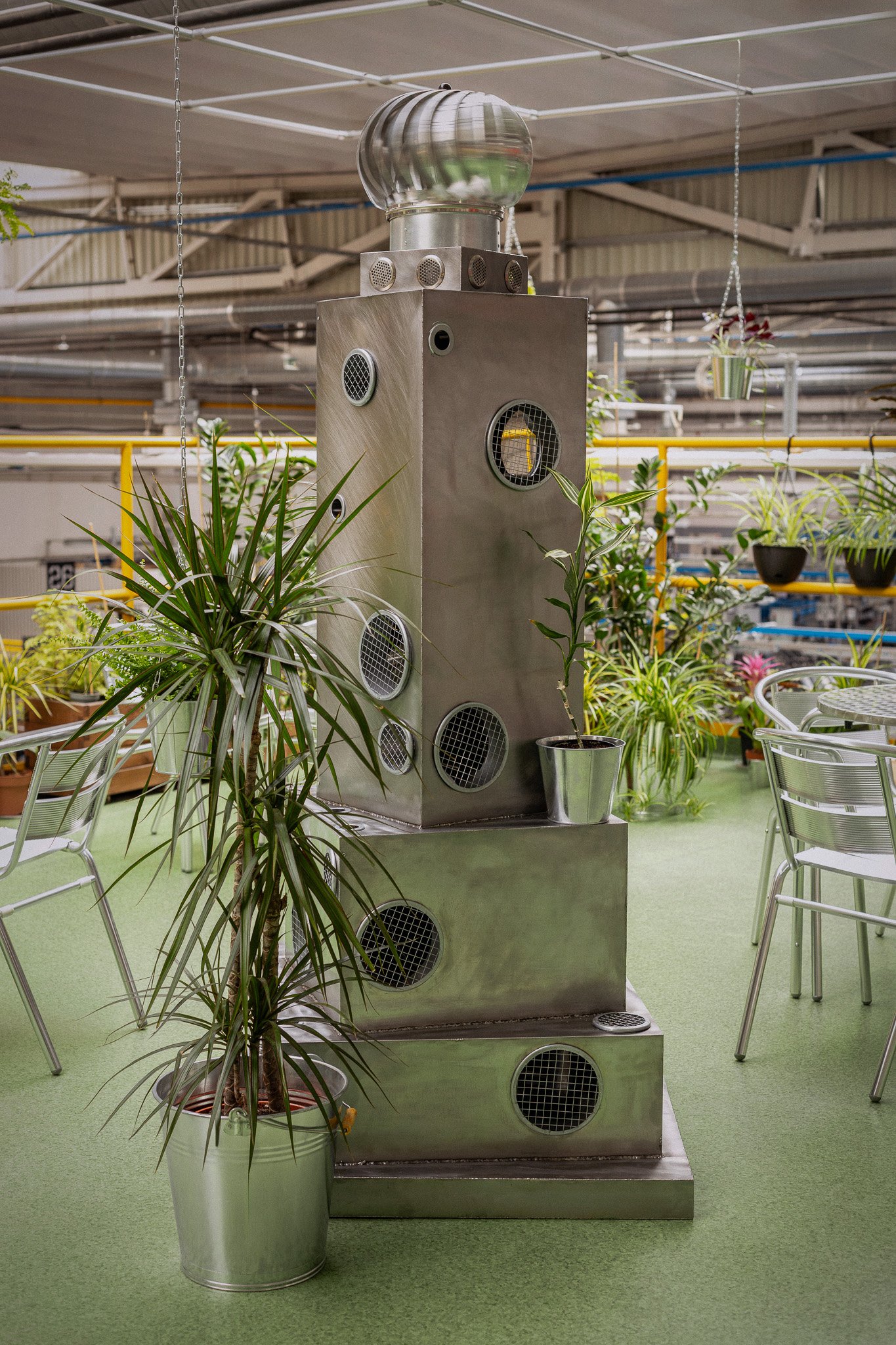
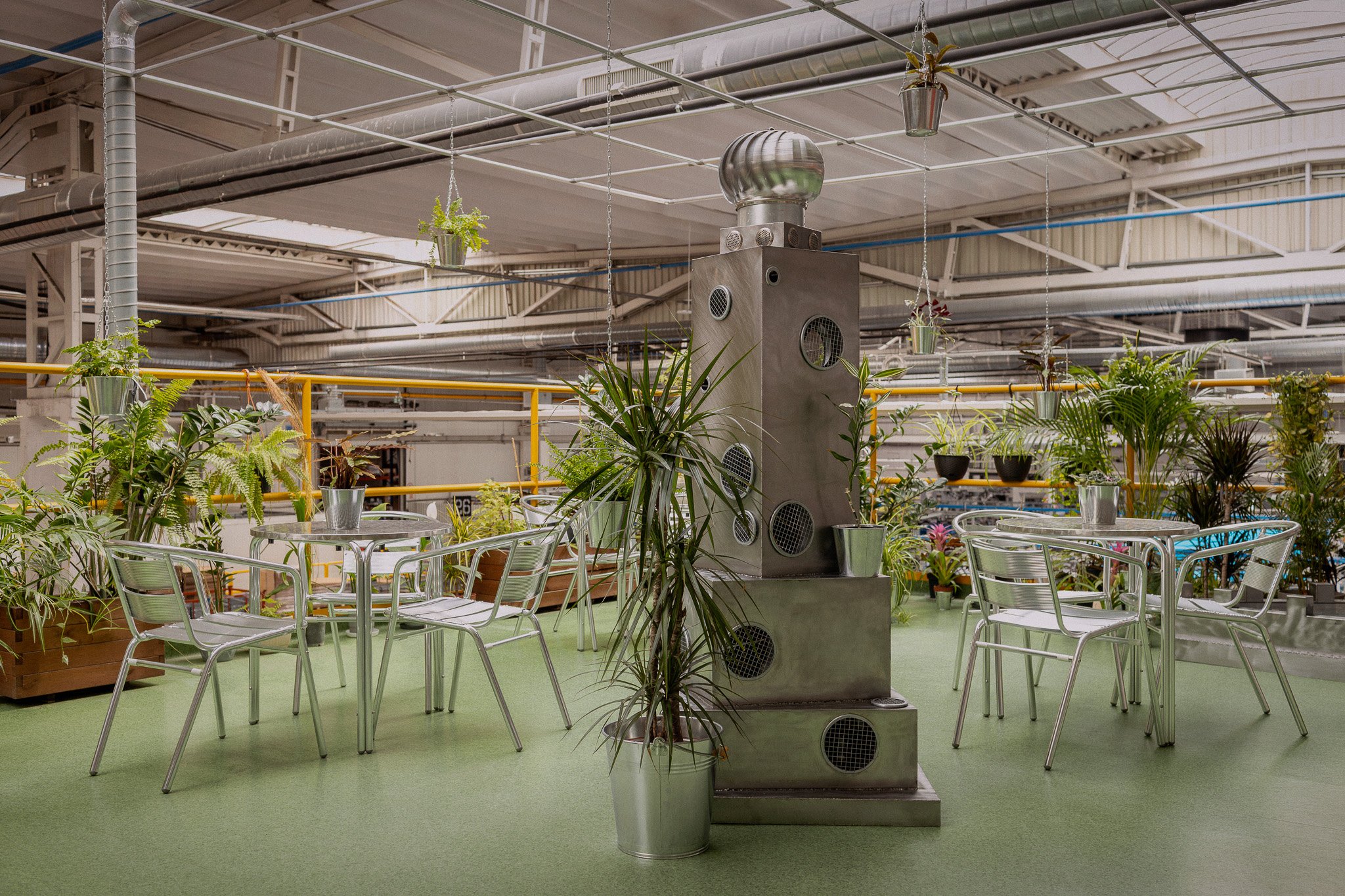
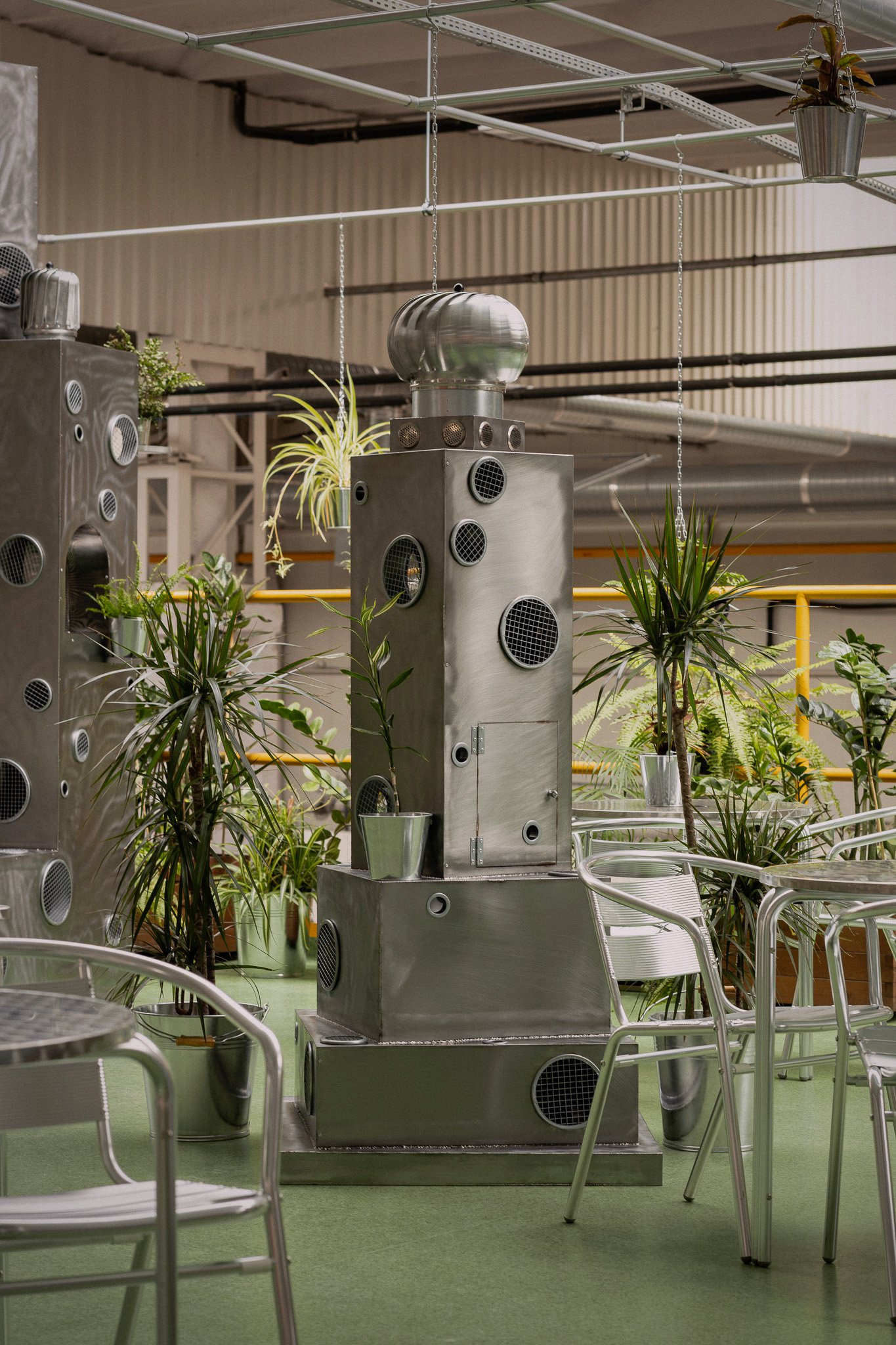

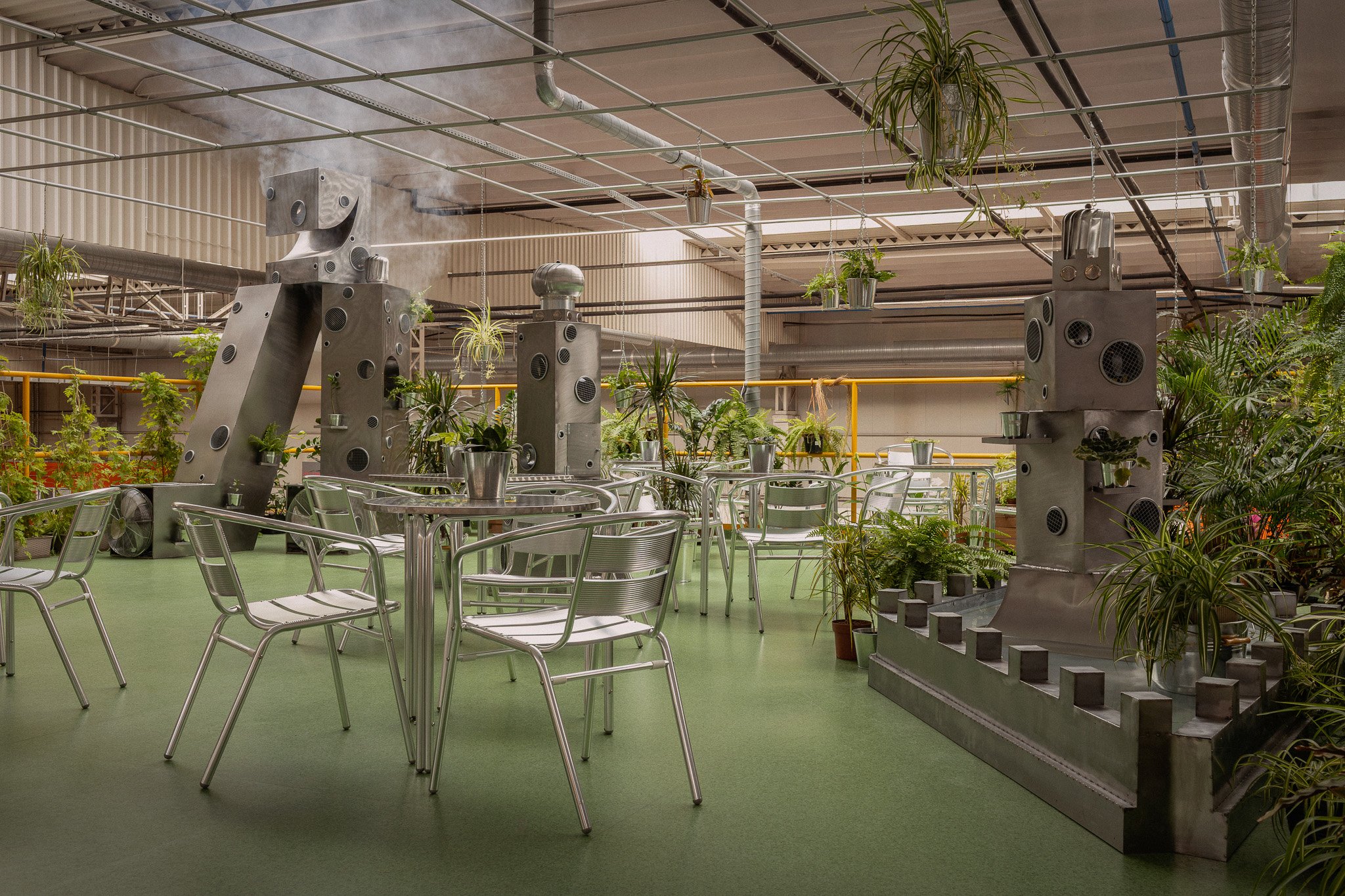

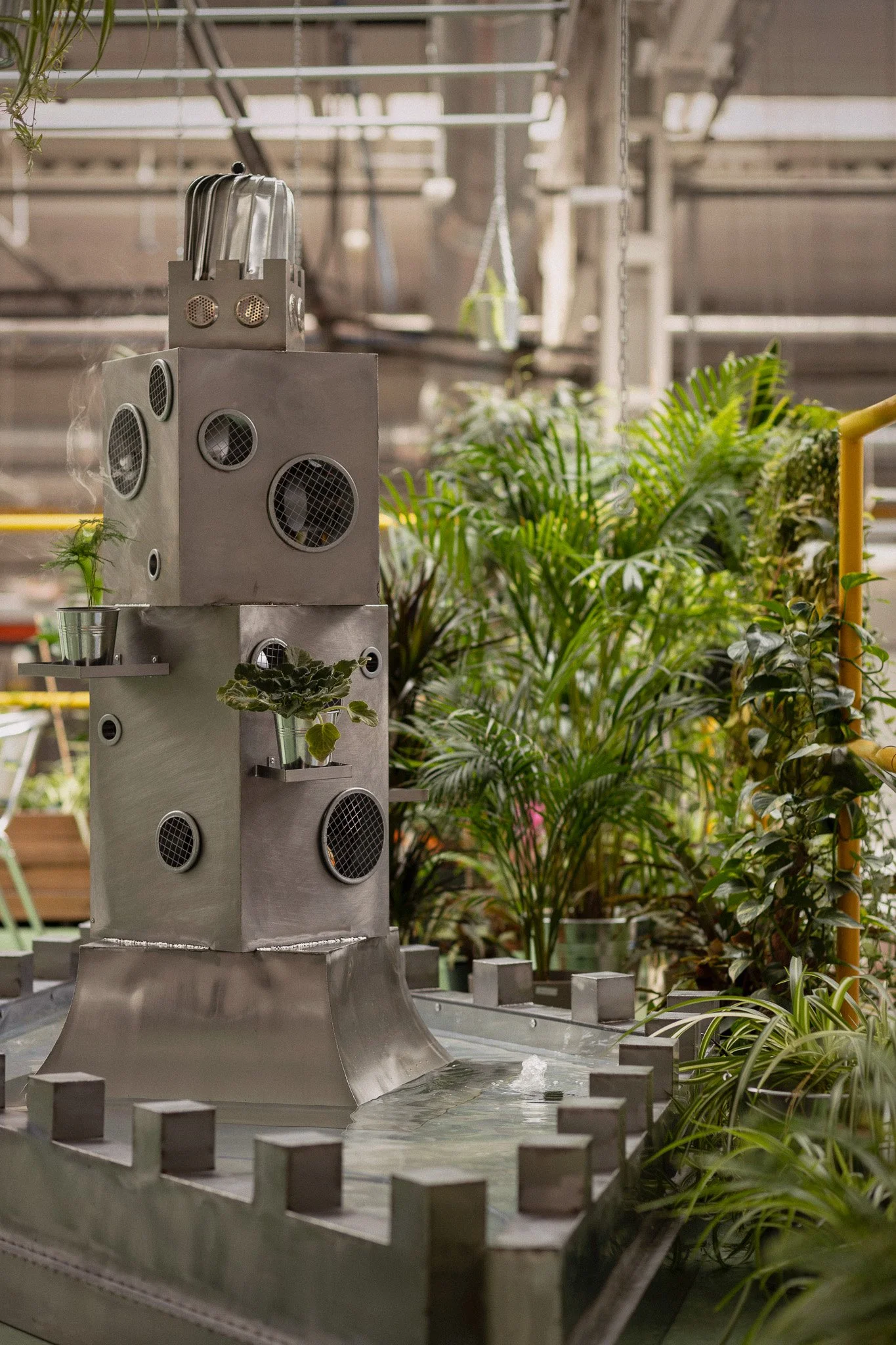
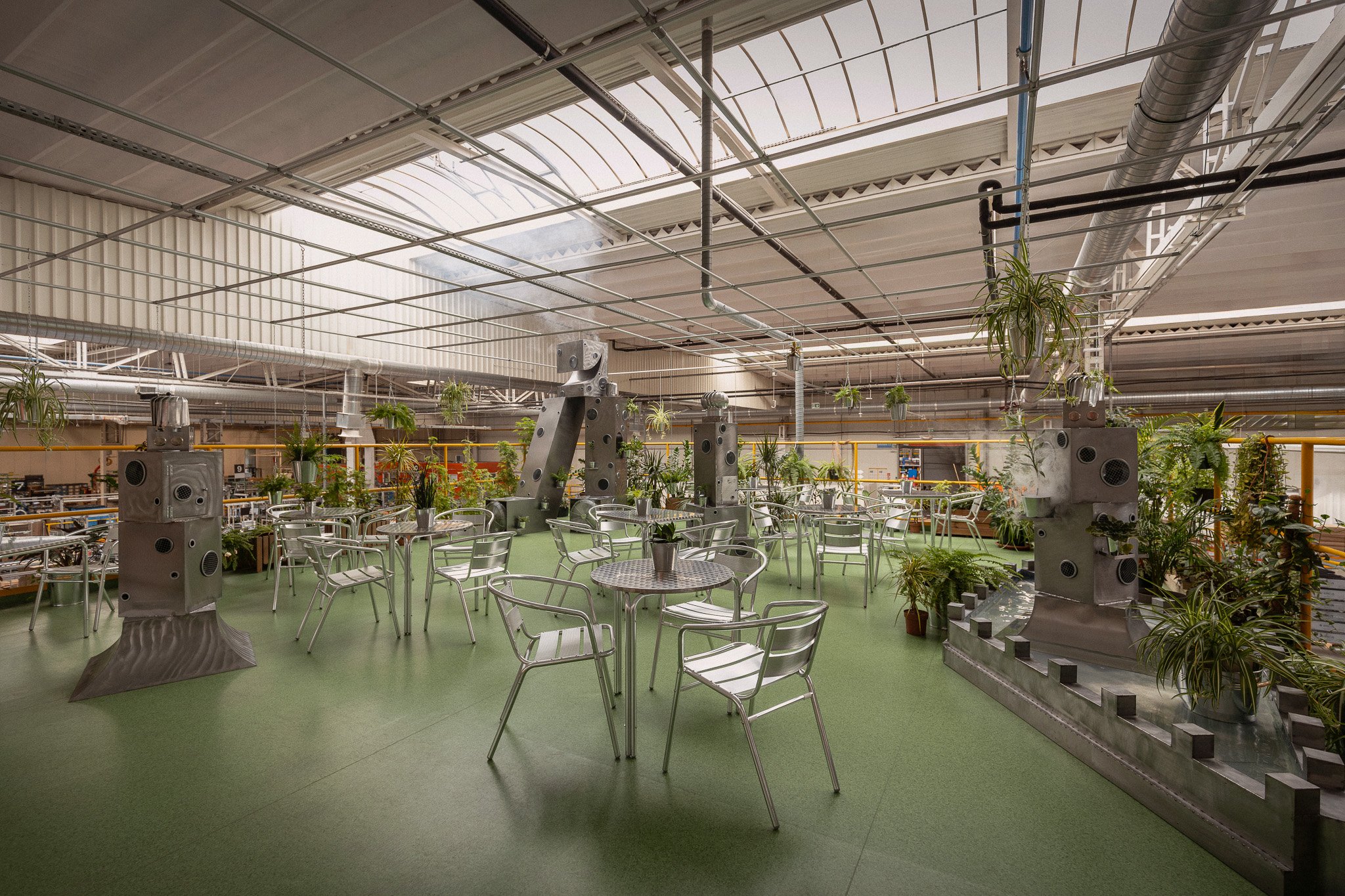

Press Release
Inhalatorium is a new site-specific installation by Cezary Poniatowski, developed within the framework of the Premio Ermanno Casoli at Elica’s plant in Jelcz-Laskowice, Poland. Positioned on a centrally located terrace overlooking the factory floor, the work transforms this industrial space into an unexpected environment—part surreal landscape, part social room, part sanctuary for breath.
Poniatowski’s sculptural language explores the relationships between materiality, subjectivity, and the human environment—probing how inanimate forms shape perception, experience, and spatial dynamics. He reconfigures common and industrial materials into composite sculptural forms that retain traces of function but resist clear interpretation. In Inhalatorium, he continues his long-standing interest in site-specific installations that respond directly to context and scale of the space, merging them with his signature aesthetic, which blends industrial materials with a visual language marked by ambiguity, distortion, and the grotesque.
The installation features a majestic, ambiguous figure and elements of a fountain, surrounded by greenery, transforming the factory’s social area into a space that feels both clinical and fantastical, functional and metaphysical. While the materials remain close to their industrial origins, their assembly and arrangement open up a space that operates outside the logic of production, merging machine aesthetics with unsettling, hybrid forms.
Air and its circulation form the conceptual spine of the project – approached not merely as a physiological or environmental process, but as a complex system spanning bodily necessity, planetary ecosystems, and the technological infrastructures through which humans have shaped and enhanced the movement of air. From ancestral practices of channeling airflow to modern technological tools, the project reflects on how air connects scales of life and industry, embodiment and environment.
The work draws on the region’s history of health resorts and therapeutic landscapes, invoking the aesthetics and functions of sanatoria, tężnie—large wooden structures used to evaporate saline water and saturate the air with minerals—and other pre-modern inhalation technologies that once held the promise of healing through breath. The title, Inhalatorium, refers to such spaces: artificial or natural zones saturated with medicinal vapors, where healing was understood as an act of atmospheric immersion. Echoing this, Poniatowski's installation becomes an “air sculpture,” evoking both the modern systems Elica develops to control airflow and deeper, cross-temporal questions about how humans attempt to shape and manage the invisible forces that surround them.
The project was developed and realized in close collaboration with Elica Group Polska’s technical staff. Its construction process integrates the expertise of engineers and factory workers, ensuring the installation is embedded in the fabric of the space while also extending beyond it. Importantly, the site is also activated through a series of breathing-focused workshops with employees —transforming it into a space not only to be seen, but also to be used and physically experienced.
Inhalatorium also resonates with a broader historical precedent in Poland: the collaboration between artists and industry that emerged particularly in the 1960s and 1970s. The Biennale of Spatial Forms in Elbląg (1965–1973), the Symposium of Artists and Scientists in Puławy (1966), and Construction in Process in Łódź (1981) fostered interdisciplinary experimentation and collective production. These initiatives saw the factory not just as a site of labor but as a space for public and artistic imagination—an idea that Inhalatorium revisits in a contemporary industrial context.
Rather than presenting a finished artwork as an object of contemplation, Inhalatorium proposes a hybrid space: a sculptural installation and a communal zone. It invites participation, movement, and use, creating a porous boundary between the industrial and the artistic, the functional and the imagined.
Expanding on the project’s focus, breath becomes a linking principle. As a vector of both care and control, air circulation emerges as a potent force shaping, and simultaneously being shaped by, bodies, spaces, and technologies. By embedding this logic into the work’s structure and use, Inhalatorium invites us to consider how systems and infrastructures – whether organic, mechanical, or social – organize the invisible flows, and how art might reimagine them.
Jakub Gawkowski, Marcello Smarrelli